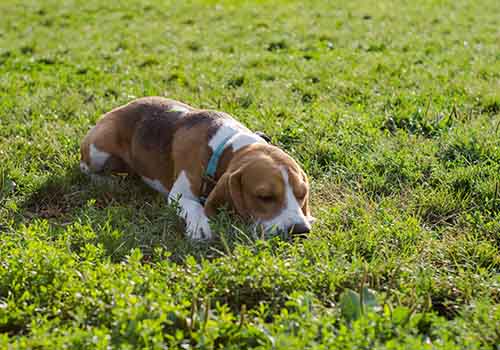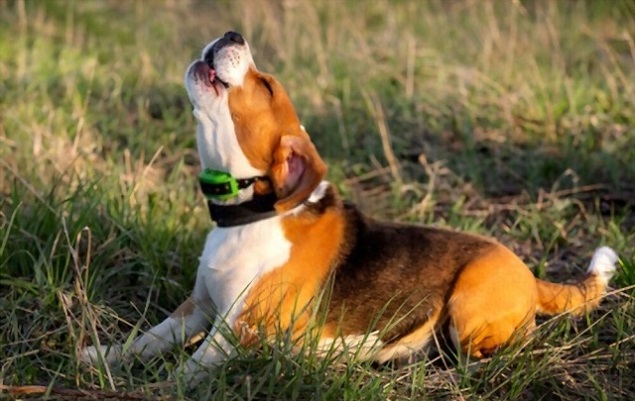Beagle behavior problems, like aggression or biting, can come from a couple of sources. One is that your dog does not see you as the dominant alpha leader. The other could be from a traumatic event that happened early in your dog’s life, such as being attacked or severely frightened by another dog. Whatever the cause of your dog’s aggressive behavior, it needs to be dealt with before it becomes a danger to you and others around your dog.
Source of Aggressive Beagle Behavior Problems
The critical age for dog socialization is about 6 to 14 weeks. During this time, your puppy needs to learn to socialize properly with other dogs and with people. This includes training your puppy not to bite or nip. If your puppy is not socialized adequately during this time, this may lead to aggression, biting and other behavior problems that just get worse as your dog ages.
Socialization starts while your puppy is still with its mother and litter. The puppy should remain with the litter until at least 8 weeks of age. After removing the puppy from the litter, you should be especially gentle, particularly for the first couple of weeks. During this time, you should not use any harsh discipline, such as hitting or yelling (these are never really appropriate for your dog, anyway). If you don’t get this right, you are likely to have more serious behavior problems down the road.
From 10 to 14 weeks, you should step up the socialization program by letting your pup meet new dogs and new people. Getting through the rest of this stage is critical to avoiding behavior problems.
What is it that can trigger aggression or other Beagle behavior problems? Part of it is genetics – if your dog comes from an aggressive line, it could make him more susceptible to aggressive behavior. This is more of a factor in some breeds than others, so it isn’t necessarily a hard rule. Being spayed or neutered can also have the opposite effect of making your dog less likely to be aggressive, so consider this when the time is right.
Put A STOP to Beagle Behavior Problems…Find Out How By Clicking Here
While some of these factors can make a little difference in whether beagle behavior can turn to aggression, the overriding factor is the environment. Things like poor living conditions, harsh owners, no socialization and being frightened or attacked by another dog are far more likely to cause aggressive beagle behavior. The good thing is that most often, you have control over these environmental conditions.
When your dog is still with his litter (his pack), there will be some posturing and biting as each pup tests his place in the pecking order. This will continue after you have removed him from the litter, but now he will be testing you and your family (his new pack). It is important that you leave no doubt that you are the alpha leader by showing your dominance (with tone of voice, posture) and that you continue this through your dog’s adolescence. Don’t allow your dog to take control at any point during this stage, otherwise aggressive behavior will rear its ugly head.
Stopping and Controlling Aggressive Beagle Behavior
If your beagle is aggressive after reaching 14 months of age (sexual maturity), especially if the dog has been neutered or spayed, you must address the problem immediately. Have you made sure you are the alpha leader? If you are having trouble, an obedience class is a must.
Be careful not to reward aggressive behavior, especially if your dog is scared. This will only reinforce bad behavior and make it harder to correct.
Part of being the alpha leader is to train your beagle to respond to your commands. Be firm and consistent. You’ll also need to control your dog’s boundaries, such as feeding and walking schedules. If you are not taking the leadership role in your home, your dog will tend to become more aggressive over time with others.
If your beagle shows signs of being defensive-aggressive, a fearful situation could cause him to lash out at someone without warning. This may be due to improper socialization. Be sure to keep the dog away from small children, who may appear more threatening to your dog. This situation will require professional help from a qualified trainer to bring your dog back into a stable social condition.
Aggressive beagle behavior can be a huge problem, but it can be brought under control – even in older dogs. If the problem gets to the point of violence, take responsibility to get professional help before someone gets hurt.




